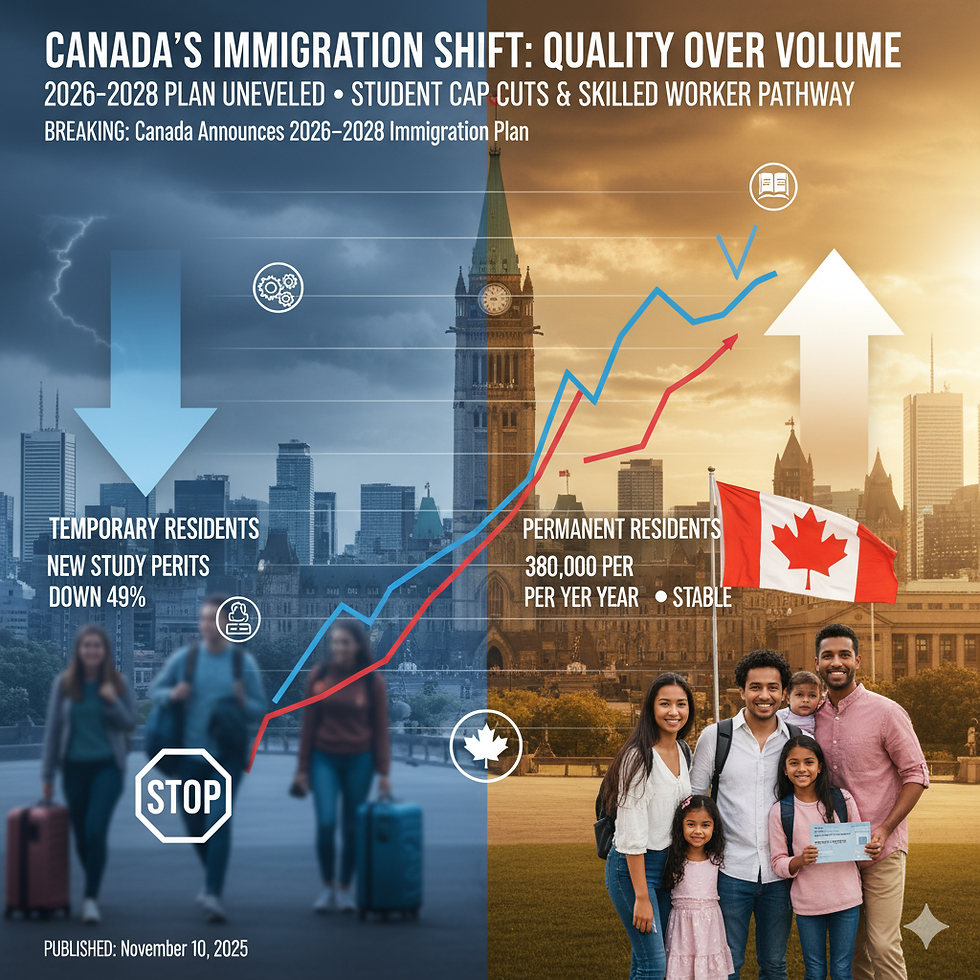How to Show Ties to Your Home Country for Temporary Resident Visas in Canada
- Ansari Immigration

- Feb 7, 2024
- 3 min read
When applying for a temporary resident visa (TRV) for Canada, one of the key factors that the immigration officer will consider is your ties to your home country. This blog post will guide you on how to effectively demonstrate these ties to increase your chances of a successful application.

What are Ties to Home Country?
Ties to your home country are the various aspects of your life that connect you to your country of residence. They indicate that you have reasons to return home at the end of your visit to Canada. These ties can be:
Family Ties: Having immediate family members in your home country can be a strong tie. This includes your spouse, children, parents, or siblings.
Employment: A stable job or owning a business in your home country can show that you have a steady source of income to return to.
Property Ownership: Owning property such as a house or land in your home country can serve as a strong tie.
Financial Assets: Savings, investments, or other financial assets in your home country can indicate your intention to return.
Social and Community Ties: Involvement in social or community activities can also demonstrate your connection to your home country.

1. Employment Evidence
One of the strongest ties you can show is continuous employment in your home country. You can demonstrate this by providing:
A letter from your employer stating your position, length of employment, salary, and the period of your approved leave.
Recent pay slips.
Proof of any business ownership or ties to a family business.
2. Financial Assets
Showing financial assets proves not only that you can support yourself during your stay but also that you have significant reasons to return home. This can include:
Bank statements.
Property deeds or mortgage statements.
Investments and savings accounts.
3. Family Ties
Evidence of close family members who depend on you or whom you depend on is a powerful indicator of your intention to return. This can include:
Marriage certificates.
Birth certificates for children.
Letters explaining how you support or are supported by your family.

4. Education
If you are a student planning to return to your studies after a temporary stay in Canada, you should provide:
An enrollment letter from your institution.
Transcripts that show ongoing or future studies.
A letter explaining your educational goals and how your visit to Canada fits into them.
5. Social and Community Ties
Demonstrating involvement in your community can further strengthen your application. This could be through:
Membership in social, cultural, or religious organizations.
Volunteer work.
Any other activities that show you are rooted in your community.
6. Property and Investments
Ownership of property or significant investments in your home country can serve as a strong incentive to return. Evidence might include:
Land or property titles.
Business ownership documents.
Investment portfolios.
7. Future Plans
Outlining your future plans in your home country can also help your case. This could involve:
A written statement of your plans upon returning.
Any evidence of commitments you've made for after your proposed trip (e.g., job contracts, educational enrollments).

8. Documentation and Presentation
Finally, how you present this information can significantly impact your application. Ensure all documents are:
Official and up-to-date.
Translated into English or French, if necessary.
Clearly organized and labeled.
If you've made it to the end of this blog, as a token of appreciation, I'm offering a complimentary sample letter designed to help you demonstrate your ties to your home country.
Conclusion
Demonstrating strong ties to your home country is crucial when applying for a temporary resident visa for Canada. It reassures the immigration officer that you intend to return home at the end of your visit. Remember, each application is unique, and what works for one person might not work for another. It’s always a good idea to seek legal advice if you’re unsure.
Good luck with your application! 🍁




Comments